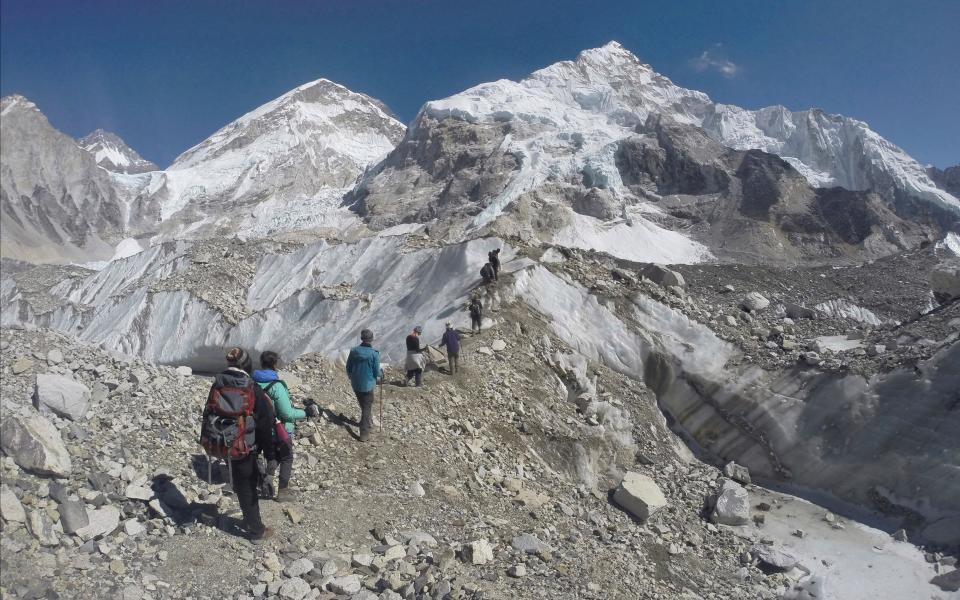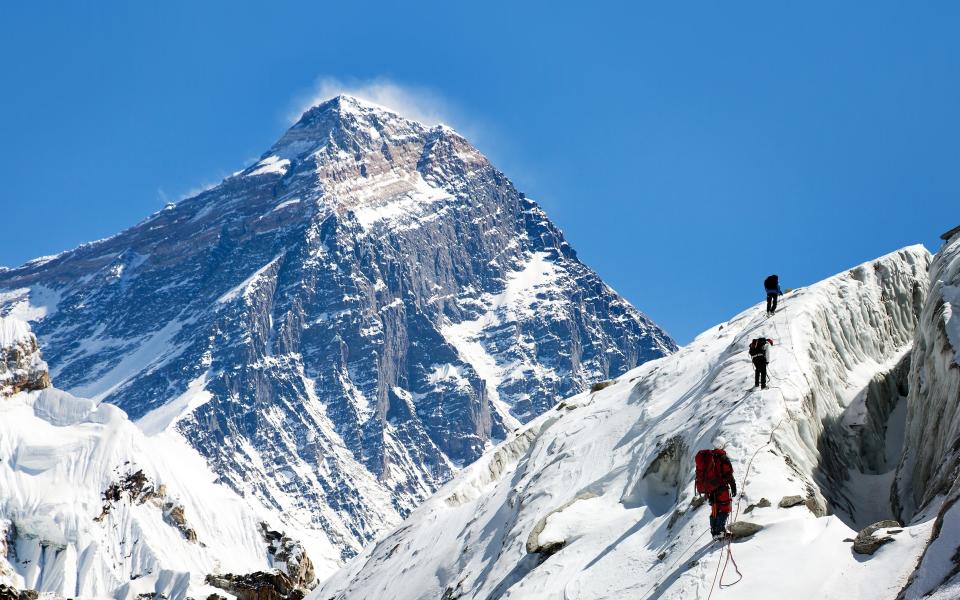Surgery may damage mental ability by cutting off oxygen, Everest study shows

Surgical operations involving anaesthetic may damage mental ability by starving the brain of oxygen, researchers fear, after conducting tests on climbers as they scaled Mount Everest.
Up to one fifth of people develop hypoxia, or oxygen deficiency, after surgery which can lead to symptoms including wheezing, confusion, high blood pressure and even heart failure and death.
But new research from City, University of London and University College London suggests that the condition can also have a significant impact on brain function, with the effects lasting for at least 11 days after oxygen deprivation.
The landmark study, which monitored 198 climbers who scaled Everest, where there is only one third of the oxygen as at sea level, found significant cognitive decline after the teams descended from the peak.
In particular, tasks associated with speech and language, learning, planning, focussing and organising were severely impacted, with performance falling by nearly 20 per cent on tests taken before and after the ascent. And the effects were still present when the climbers returned to Kathmandu, 11 days later.

Researchers believe the results may partially explain why far more climbers die coming down from the Everest than they do going up.
Asked whether the same impact might be seen after surgery, study leader Professor Stanton Newman, Dean of the School of Health Sciences at City, said: “Absolutely. What we found is that there was a clear relationship between levels of hypoxia and brain function which has not been established before.
“It was possible to group people into three groups, some of whom had mild effects, and some whom it was significant. We noticed that it was worse for older people.
“We know that a number of people who go back to work after surgery and find that they have cognitive problems but it was unclear what was causing it.
“We also noticed that the declines happened even when people were given oxygen and their oxygen levels returned to normal.”

The team used the climbers to study the effects of hypoxia because it would be unethical to deprive humans of oxygen in trials.
Participants received a series of neuropsychological tests assessing memory, language, attention, and executive function using standardised and commonly used assessments in clinical and research settings.
These were administered at sea level in London,11,400ft (3,500m) at Namche Bazaar in Nepal, and at (17,000ft ) 5,300m at Everest Base Camp. Tests were also conducted upon return to 4200ft (1,300m) in Kathmandu. This group was also compared with a control group.
They found that the the greatest decline was in older adults suggesting that cognitive recovery from surgery may take longer in older people.
Hypoxia can also be caused by lung diseases such as emphysema, bronchitis and pneumonia where sufferers struggle to take in enough air to keep up oxygen supplies to their tissues.
“By taking otherwise healthy individuals to Everest Base Camp our study has provided insight into how low oxygen environments impact on the human brain and body,” added Prof Newman.
“We hope this study will give further insight into how we can respond to hypoxia-related cognitive impairment in clinical settings, particularly in older patients, in order to guide therapy and thereby minimise the magnitude and duration of impairment.”
The research was published in the journal PLOS One.

 Yahoo News
Yahoo News 
